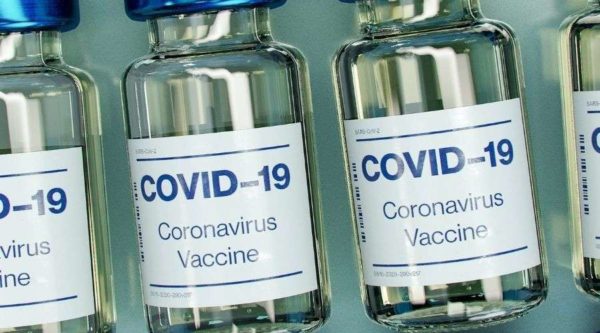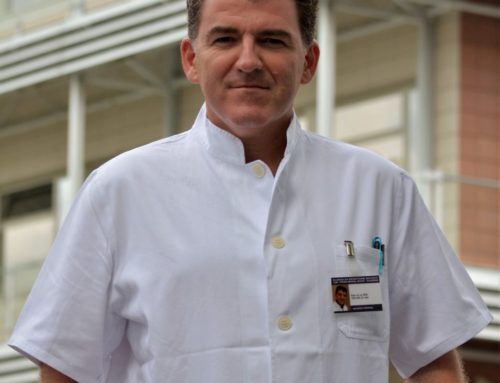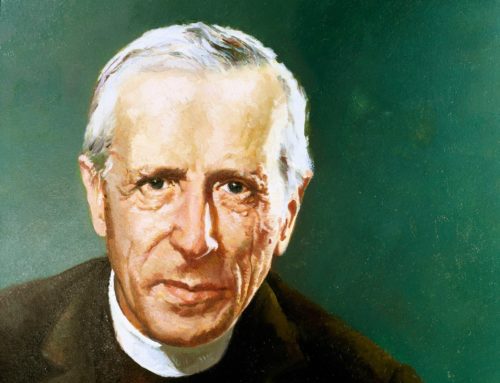The John Paul II Medical Research Institute: Finding an Ethical Response to COVID-19
BY JENNIFER BRANSON
Most often used in reference to a grave moral evil, the words “stem cell research” elicit a strong reaction from Catholics.
It is increasingly common to hear that vaccines, therapeutics, and other medicines and treatments carry the stain of development using aborted fetal cells. It is also harder for Catholics to find medicines and treatments free of contact with these cell lines.
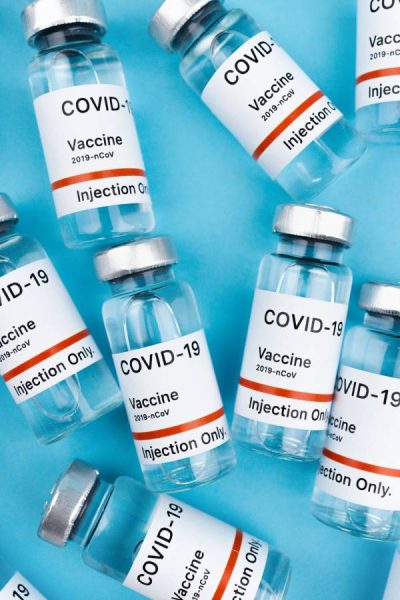
This is no less true with the current COVID-19 vaccines. Dr. Alan Moy, founder and scientific director at the John Paul II Medical Research Institute (JP2MRI), and his team of medical researchers are working hard to educate and aid Catholics in the field of stem cell research, using adult stem cells to treat and cure many complex diseases. Their studies include the realms of cancer, neurological diseases, rare diseases, and chronic diseases. And now, by demand, they are developing a vaccine for COVID-19.
As the SARS-CoV-2 or COVID-19 virus spread early last year, it became apparent that a vaccine was being promoted as the key to getting back to some semblance of normal life. As news about Operation Warp Speed and the resulting vaccines started to spread, it did not take much research to determine that these vaccines relied heavily on aborted fetal cell lines for production or testing.
Moy recalled that the Institute’s interest in COVID-19 research started when friends began to contact them and express concerns about the use of aborted fetal cell lines in the research and production of the vaccines. Although coronavirus research is not a field they would normally enter, the project fell perfectly in line with their mission: to eradicate the use of aborted fetal cell lines in medical research and treatment by using adult stem cells and induced pluripotent stem cells to uncover cures and therapies.
Yet, they did not take the case straightaway. Instead, Moy related, they took time to look back to the medical research and discovery concerning the SARS outbreak of 2002: what succeeded and what failed. They found that the methods being used for Operation Warp Speed were much the same as those used in 2002 with ineffectual results. Moy and his team concluded that the vaccines being developed not only had moral issues stemming from the use of aborted fetal tissue in research and production, but significant scientific shortcomings. The traditional methods for developing vaccines were being ignored in favor of quick, easy methods that require less testing and less regulation.
In spite of being relatively late in initiating coronavirus research, the Institute moved to take on a COVID-19 vaccine project; clearly a long-term solution was needed. The JP2MRI researchers identify this long-term solution as a vaccine developed in a moral and ethical way using traditional recombinant protein or killed/attenuated live virus methods.
Moy founded the JP2MRI in 2006. The year prior, the Pontifical Academy for Life at the Vatican had concluded that it is morally acceptable for patients to use treatments produced with aborted fetal cell research if there is no ethical alternative. However, the Academy also stated that “Doctors and fathers of families… should take recourse, if necessary, to the use of conscientious objection with regard to the use of vaccines produced by means of cell lines of aborted human fetal origin,” and further, Catholics have “a moral duty to continue to fight and to employ every lawful means in order to make life difficult for the pharmaceutical industries, which act unscrupulously and unethically.”
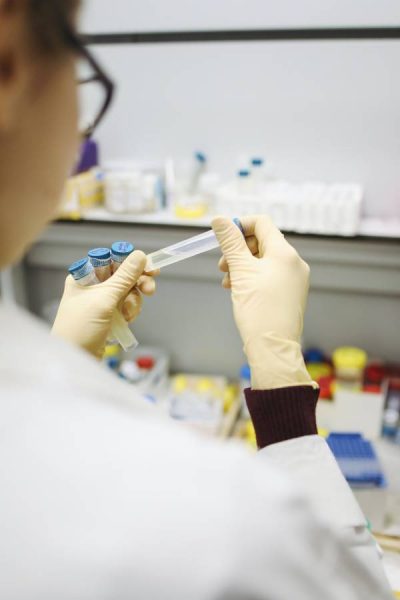
Moy saw no cohesive Catholic response to combat the use of these embryonic cell lines. He realized that the unintended consequence of this statement from the Academy was a lack of motivation to change. Secular biotechnology routinely uses aborted fetal cell lines in cancer treatments, therapeutics, gene therapies and vaccines. Moy felt it was important to offer an alternative approach.
A moral stand on an issue that includes taking on giants like pharmaceutical corporations does not come without its challenges. When the Institute started, it faced pushback from secular doctors and politicians for tackling what was seen as the impossible. But they persevered and ultimately showed that a moral and ethical stem cell research solution is attainable. “We have solved technical issues concerning stem cells that were previously unsolvable,” Moy expounded. For example, Moy’s team has developed an alternative to the HEK293 cell line — a cell line derived from human embryonic kidney cells grown in tissue taken from an aborted female fetus — that they hope to bring to market this year.
In their work on COVID-19, JP2MRI is determined to develop a vaccine that is not only ethical but also practical in its long-term efficacy — neither of which can be claimed by the mRNA vaccine. The mRNA vaccine is a subunit vaccine. The spike protein gene injected in the muscle prompts the muscle tissue to create viral proteins, provoking an immune reaction that creates antibodies. Although these vaccines can be produced more quickly, the immunity derived from them is very narrow and is limited to the specific and single protein or viral antigen. Any major mutation of that viral antigen would mean that those vaccinated would no longer have the correct antibodies to neutralize the new strand. This requires individuals to be revaccinated, which increases the risks versus the benefits of gene therapy. In short, the mRNA vaccines produce narrow and weak immune responses that require a booster shot, and also require storage at more rigorous temperature levels to maintain vaccine potency, which makes them extraordinarily difficult to transport.
Moy, however, is confident that the development of a recombinant protein vaccine is an achievable goal. Studies show that people who recovered from the 2002 SARS coronavirus recovered better overall from COVID-19. This provides a clue that the vaccine should use traditional methods to provide immunity to not only this but the next novel coronavirus. A properly researched and developed recombinant protein vaccine will provide a stronger immune response, can guard against mutations, and will be easily transportable and storable.
Because of the hope this inspires, JP2MRI has actually received several calls from European countries that are suffering under lockdowns and increased cases, asking what they can do to help get the vaccine to production.
As far as Moy is aware, there is no other research being done on recombinant protein, killed virus or attenuated live virus COVID-19 vaccines in the United States. The only similar research he is aware of is being done in China. The JP2MRI vaccines are currently in a preclinical stage about two years away from clinical trials.
For updates and more information about the John Paul II Medical Research Institute, please visit www.jp2mri.org.

